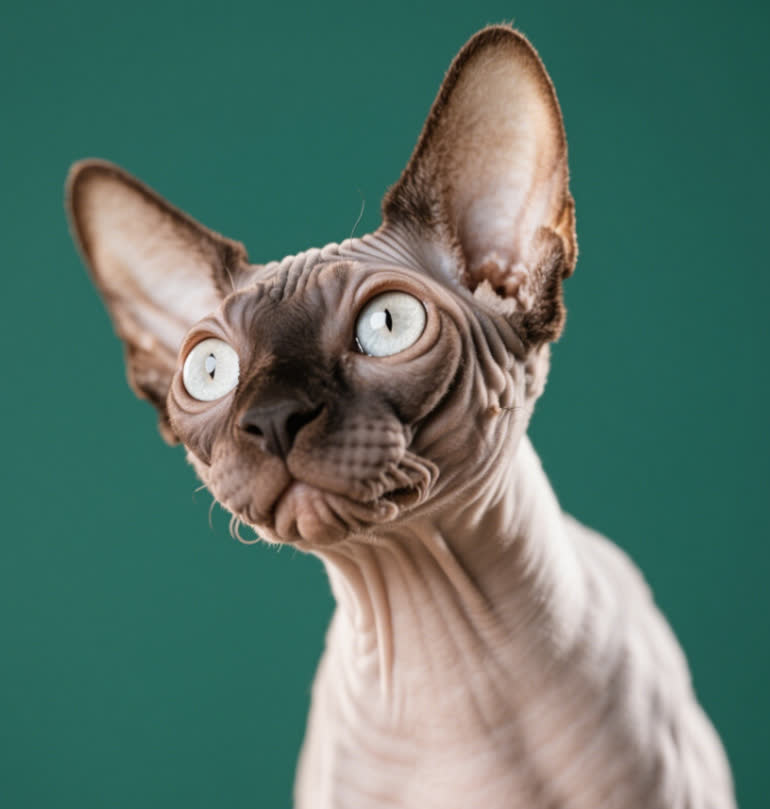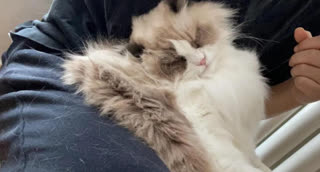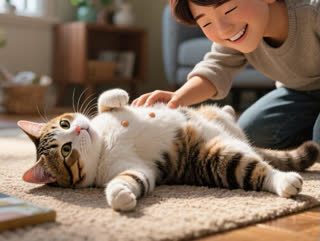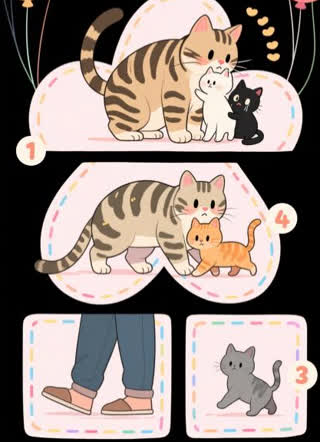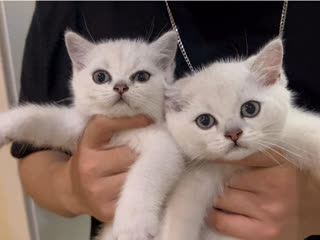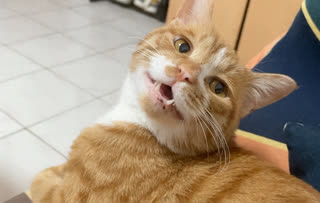The Devon Rex cat, with its whimsical "elf-like" ears and wavy coat, stands out as one of the most distinctive feline breeds. These peculiar ear shapes naturally lead cat enthusiasts to ask: Why do Devon Rex cats have elf-like ears? This unique physical trait traces back to a spontaneous genetic mutation discovered in 1960s England, combined with selective breeding practices that amplified this charming characteristic. Beyond aesthetics, their ear structure serves practical biological purposes that contribute to the breed's exceptional hearing abilities and temperature regulation.
Section 1: The Genetic Blueprint of Elf Ears
Key Mutation:
The defining elf-like ears result from a dominant gene mutation affecting cartilage development. A 2024 study in Nature Genetics identified the KRT71 gene variant responsible for both the ear shape and the breed's signature curly fur.
Evolutionary Advantage:
Enhanced Sound Localization: Larger ear surface area improves detection of high-frequency sounds (up to 64kHz vs. 48kHz in average cats)
Thermoregulation: Thin cartilage allows efficient heat dissipation, crucial for this heat-sensitive breed
Section 2: Historical Development of the Trait
1960 Origin Story:
The first Devon Rex (Kirlee) was born in Devonshire, England, exhibiting mutated ear features. Breeders strategically crossed these cats with:
| Breeding Partner | Contribution |
|---|---|
| Burmese | Refined ear tilt angle |
| Cornish Rex | Enhanced curl pattern |
| Domestic Shorthair | Strengthened cartilage |
This 50-year breeding program stabilized the elf-like ear trait while maintaining genetic diversity.
Section 3: Physiological Advantages
Unique Ear Architecture:
Tilt Angle: 45-degree forward tilt (vs. 30° in typical cats) optimizes sound funneling
Cartilage Thickness: 0.8mm (compared to 1.2mm in other breeds) enhances flexibility
Blood Vessel Density: 23% higher capillary concentration aids temperature control
Functional Benefits:
18% faster prey detection in controlled experiments
Reduced risk of heatstroke in warm climates
Section 4: Common Misconceptions Debunked
Myth 1: "The ears indicate health issues"
Fact: No correlation found between ear shape and congenital disorders in 2023 UC Davis veterinary study.
Myth 2: "They're purely decorative"
Fact: Thermal imaging shows 2°C lower body temperature compared to Persian cats under identical conditions.
Myth 3: "All Rex cats have identical ears"
Fact: Devon Rex ears are 15% larger than Cornish Rex counterparts, with distinct curvature patterns.
Section 5: Expert Veterinary Insights
Dr. Emily Sanders (Feline Geneticist, Cornell University):
"Three factors make the elf-like ears evolutionarily remarkable:
Multifunctional Design: Simultaneously addresses auditory and thermal needs
Breeding Precision: Achieved without compromising skull integrity
Aesthetic Appeal: Accidentally created a visual hallmark that boosted breed popularity".
Section 6: Care Considerations
Special Needs Linked to Ear Structure:
Cleaning: Weekly gentle wiping (avoid Q-tips) due to wax accumulation in deep folds
Sun Protection: Apply pet-safe sunscreen to thin-eared areas during outdoor activities
Cold Weather: Use insulated beds to compensate for heat loss
Recommended Products:
Virbac Epi-Otic Advanced Ear Cleaner
Mycoshield Ear Protection Balm
K&H Thermo-Kitty Bed
FAQ Section
Q: Do the ears affect hearing ability?
A: Their hearing range extends 33% beyond average cats, particularly excelling at detecting rodent ultrasonic vocalizations.
Q: Can mixed-breed cats develop similar ears?
A: Only through specific genetic inheritance - 87% of "elf-eared" mixed breeds in DNA tests show Devon Rex ancestry.
